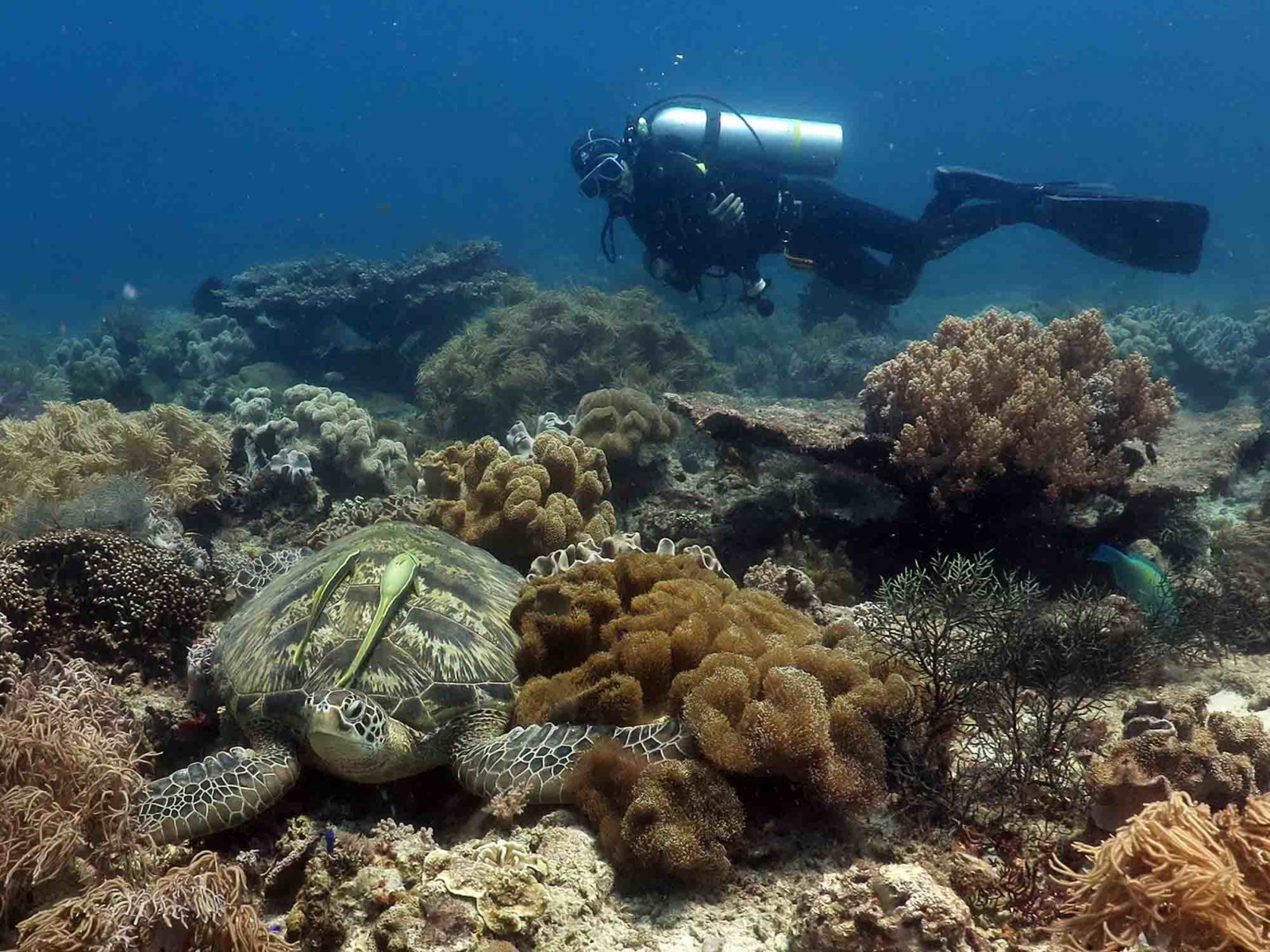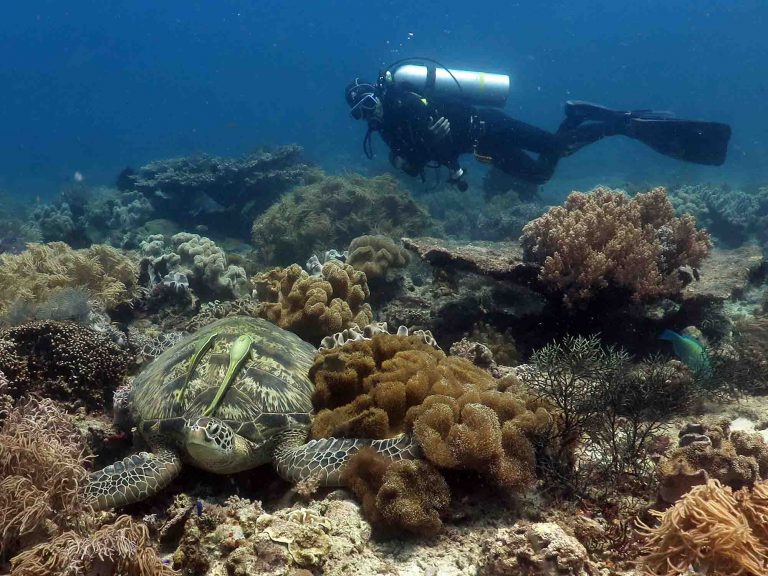DIVING NEWS
‘Phase analysis’ offers new hope for coral

Picture: Steve Weinman.
Identifying five distinct phases of coral-reef decline in place of the standard “healthy, bleached or dead” analysis could be the key to saving threatened habitats. That’s according to a study by US researchers who say they have come up with a new tool for monitoring reef health.
The report by scientists at the University of California Santa Barbara, the National Centre for Ecological Analysis & Synthesis, the Environmental Defence Fund (EDF) and other bodies suggests that the five phases can help to determine more effective means of managing reef recovery.
21 November 2018
“What if doctors believed that people are either healthy or dead, with no in-between states? They would be missing a lot of opportunities to prevent death,” said Senior Scientist Kendra Karr of the EDF. “This study reveals that communities around the world may be missing opportunities to prevent death, or bleaching, of coral reef eco-systems.
“Just like we need different treatments to address our individual illnesses as patients, each coral-reef phase may need a different approach to recovery.”
The phases identified, based on more than 3000 scuba surveys in Hawaii but believed to have global application, range from high coral-cover with high fish-biomass through three intermediate phases to low coral-cover and low fish-biomass.
With even small shifts in environmental conditions causing “tipping points” in ocean eco-systems, the researchers believe that fishery managers can use their approach to identify and avoid the sort of abrupt changes that can threaten coral reefs.
Reefs identified affected by bleaching, overfishing and storm impacts are known to be recoverable, says the study – but only as a result of collective global action.
“It is our hope that citizen scientists and coral enthusiasts around the world use this study to participate in monitoring coral-reef phases anywhere – whether it’s monitoring corals right off their shore, or in new areas they are passionate about,” said Karr.
“Doing so will give decision-makers more opportunities to help save these precious resources.”

